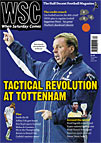 Kris Boyd has walked away from George Burley’s Scotland set-up. Gordon Cairns asks why many have sided with the sulking player
Kris Boyd has walked away from George Burley’s Scotland set-up. Gordon Cairns asks why many have sided with the sulking player
Former secretary of state for Scotland David Cairns seems an unlikely mentor for Rangers striker Kris Boyd, but one wonders if the only minister to resign in the short-lived rebellion against Gordon Brown had been whispering in the ear of the disaffected reserve Scotland striker. How else might the bizarre retirement of Boyd in the wake of the draw with Norway be explained? The catalyst seems to have been Burley’s decision to bring on two strikers, Chris Iwelumo and Stephen Fletcher, with one cap between them rather than Boyd, which was obviously too much for his fragile ego.
Boyd is not even a first pick with his club: Walter Smith, like his predecessor at Rangers, Paul Le Guen, hasn’t shown complete faith in his No 9. Boyd did not make the squad for this season’s first Old Firm game , with Daniel Cousin recalled from the reserves to score in the 4-2 victory before heading for Hull the next day. Last season Smith continually picked a clearly unfit Jean-Claude Darcheville in front of Boyd in the games that mattered.
Walter Smith summed up Boyd best by calling him an enigma, adding he had never known a player to be so clinical at scoring goals yet able to do little else on the pitch. Boyd’s phenomenal tally – 77 goals for Rangers in 116 games – has been bulked out against lesser opposition, although he came on as a substitute in both Scottish cup finals last season to score the winning goals.
Surprisingly, Boyd’s petulant reaction generated some support among columnists such as the Daily Record’s James Traynor, who suggested that the player was right not to let Burley “ridicule” him any further. Boyd’s record of seven goals in 15 internationals has also been cited as compelling evidence to keep him in the team, although he scored twice against the Faroes and once against Bulgaria in an anomalous 5‑1 victory in a summer tournament in Japan.
Boyd’s sympathetic hearing reflects Burley’s unpopularity with the football media, who were casting doubts on his ability before the qualifying campaign started. Burley wasn’t as well known to the press up here as other favourites for the job such as Mark McGhee and Graeme Souness, having spent the bulk of his playing and managing career down south. He didn’t help his cause by not being as open to the media as his predecessors Alex McLeish and Smith, while he has kept an irritating silence on what had been the biggest Scottish football story in recent years – what happened to cause him to lose his job at Hearts. Conspiracy theorists also suspect an anti-Burley sentiment among Rangers players. Last month Lee McCulloch decided to make himself unavailable, goalkeeper Allan McGregor publicly supported Boyd while criticising Burley, and Kenny Miller, apparently unhappy at being a sub against Iceland, also withdrew from the next game.
It may be that Boyd is hoping that history will repeat itself, given that he played an integral role in Rangers’ dismissal of Paul Le Guen. The Frenchman had taken exception to Boyd’s drinking – the club doctor was allegedly sacked for making excuses for the player when he came to work with a hangover – and his fondness for eating packets of crisps before a match. When Le Guen took the captaincy from Barry Ferguson, Boyd’s biggest ally at the club, owner David Murray stepped in to sack the manager.
Burley’s sharp retort to Boyd’s petulant actions may have been coloured by his own experiences in the Seventies and Eighties. Although he was a fixture in Bobby Robson’s classic Ipswich side, he picked up only 11 caps. He was unfortunate to have a career that more or less coincided with that of Scotland’s greatest ever right-back, Danny McGrain, but he still turned up to the squad on a regular basis. With Rangers players quitting at the rate of one a month and others of distant Irish ancestry opting to play for a country they have visited previously only on holiday, Burley must be worried whether he will have 11 players to put out against Holland in March.
From WSC 262 December 2008